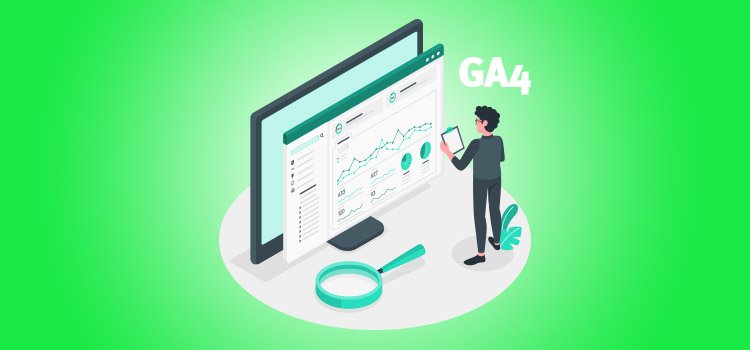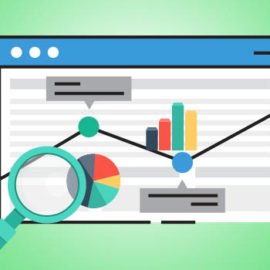
|
Getting your Trinity Audio player ready...
|
The digital world offers countless opportunities for companies and entrepreneurs to reach their target audience efficiently. However, understanding user behavior and the performance of your website or app is essential to making informed decisions.
That's where Google Analytics (GA4 – Google Analytics 4) comes into the picture. This powerful analytics tool gives you valuable insights into your website traffic, user interactions, and conversion goals. In this article, we'll explore everything you need to know about Google Analytics or GA4 and how it can benefit your business.
What is Google Analytics?
The Google Analytics is a web analytics platform provided by Google. It allows website owners to collect data about website traffic, traffic sources, user behavior, conversions, and more. This way, with Google Analytics, you can have a complete view of your website's performance and understand how visitors interact with it. It is an essential tool for optimizing your marketing strategies and improving user experience.
What is GA4 (Google Analytics 4)?
GA4, also known as Google Analytics 4, is the latest version of Google Analytics. It was launched in October 2020 and offers enhanced features for tracking user behavior across different platforms, including websites and mobile apps. Thus, GA4 is designed to meet the demands of constantly evolving digital businesses by providing more comprehensive and detailed insights into performance and the user journey.
The new version of Google Analytics is the platform's new measurement standard, replacing the Universal Analytics standard, discontinued on July 1, 2023.
Key Features of Google Analytics 4 or GA4
Google Analytics 4 offers several advanced features for data analysis. Here are some of GA4's key features:
1. Event-Driven Data Model:
GA4 adopts an event-driven data model, allowing you to track specific events rather than just pages and page views. Therefore, it offers a more granular and detailed analysis of user behavior, thus allowing you to better understand users' actions and interactions on your website or app.
2. Predictive analytics:
One of the great new features of GA4 is the predictive analysis capability. It uses machine learning to make predictions about future user behavior, identify consumption patterns, and provide insights into customer lifetime value. With this, it helps in making strategic decisions based on these predictions and customizing marketing strategies to meet the needs of the target audience.
3. Mobile App Integration:
GA4 natively supports mobile app tracking, allowing you to collect user behavior and engagement data on mobile devices more efficiently. This way, it provides detailed information about how users interact with your app, which features are used most, and how to optimize the user experience.
4. User Privacy:
GA4 was designed with growing user privacy concerns in mind. It offers enhanced features to protect personal data and complies with privacy regulations such as GDPR and CCPA.
Thus, GA4 enables a more user-centric approach by providing control over data sharing and user consent options.
5. Cross-platform analysis:
With GA4, you can analyze user behavior across different platforms, including websites and mobile apps, from a single dashboard. So, it allows you to have a unified view of user behavior across all touchpoints, better understand the customer journey, and identify opportunities for improvement.
6. In-Depth Data Exploration:
GA4 provides a more intuitive user interface and in-depth data exploration capabilities. This way, you can explore real-time data, segment your audience based on multiple dimensions and metrics, and create custom reports to meet your specific needs.
These are just some of the key features offered by Google Analytics 4. By utilizing these features effectively, you will be able to gain valuable insights into your website or app's performance, understand user behavior, and make informed decisions to improve your marketing strategy and achieve your business objectives.
The differences between Google Analytics and GA4
While Google Analytics and GA4 have similar features, there are some key differences between the two versions. Here are some of them:
1. Data Model:
GA4 adopts an event-driven data model, which means it tracks specific events rather than pages and page views.
2. Mobile App Integration:
GA4 natively supports mobile app tracking, allowing you to collect user behavior and engagement data on mobile devices more efficiently.
3. User Privacy:
GA4 was designed with growing user privacy concerns in mind. It offers enhanced features to protect personal data and complies with privacy regulations such as GDPR and CCPA.
4. Predictive analytics:
GA4 features predictive analytics capabilities that allow you to make predictions about future user behavior, identify consumption patterns, and make strategic decisions based on these insights.
In short…
Google Analytics 4 is an essential tool for any online business that wants to better understand their website's performance, track user behavior and optimize their marketing strategies. GA4 offers advanced features to meet the demands of the constantly evolving digital world, bringing important innovations.
By implementing this tool in your business, you will have access to valuable data that can help you identify growth opportunities, improve user experience, and boost conversions. Remember to explore the features offered by the tool, try out different strategies, and adjust your tactics based on the insights you gather.
So, whether you're just starting out or already have an established online presence, Google Analytics or GA4 is an indispensable resource for gaining valuable insights into your website's performance and making decisions for the success of your online business.

Marcel Castilho is a specialist in digital marketing, neuromarketing, neuroscience, mindfulness and positive psychology. In addition to being an advertiser, he also has a Master's degree in Neurolinguistic Programming. He is the founder and owner of Vero Comunicação and also the digital agency Vero Contents.




Comments are closed.